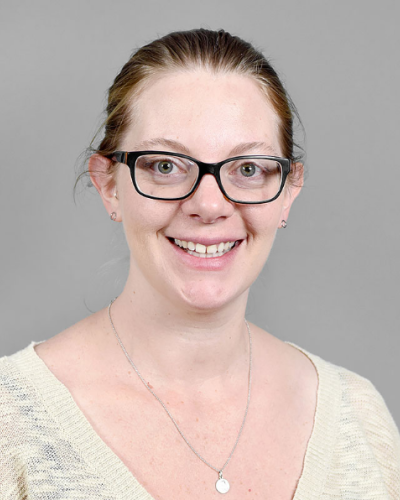Emily Cooney, Lecturer (Writing Programs)
Emily Cooney has been teaching composition courses since 2015, when she completed her PhD in rhetoric, composition, and linguistics here at ASU. She was promoted from the rank of instructor to lecturer last fall. She holds a BA and MA from the College of Charleston in South Carolina. Her research interests are environmental rhetorics, place-based literacies, project-based learning, and second language writing instruction.
When asked about the best part of teaching writing, she says she likes to “help students see the value in their unique ideas and contributions.”
“It is rewarding when they develop and improve the necessary skills to anticipate the needs of their audience so that they can persuasively share their ideas,” Cooney shared. She is thankful that “the ASU English department, and Writing Programs specifically, trust their teachers enough to let them use their strengths to develop classes that will reflect both what they value as individual educators and the values and learning outcomes of the program.” This allows for creativity which keeps Cooney excited and engaged and constantly on the lookout for new assignment ideas.
Cooney has some good pieces of advice on how to cope with the stresses of an academic career. Although she can’t say she is very good at balancing home and work life, she tries to set limits for herself and have clear lines that separate work and family. She finds playing and reading with her two-year-old son brings her joy, as well as clearing her head of the stresses of work. She loves spending time with her family. With her husband Jason, her son Jack, and their dog Sidney, she enjoys afternoons in the park and day trips to Sedona and Flagstaff.
We need to do more to make visible what's valuable about the humanities.
–Emily Cooney
She believes critical thinking is a key part of every class. What worries her is that people do not often understand the importance of its “obvious public good in that it is critical thinking that creates more engaged citizens.”
Cooney continued: “The downside is its often-hidden work, which means while I believe everyone becomes better when they take a humanities course, they don't always see how they've grown or see that the work of analyzing a text or critiquing a theory seeps into how they engage with the world around them.” She concludes by observing that, “we need to do more to make visible what's valuable about the humanities. We need to make it exciting.”
—Yenan Lyu
ASU image of Emily Cooney.

